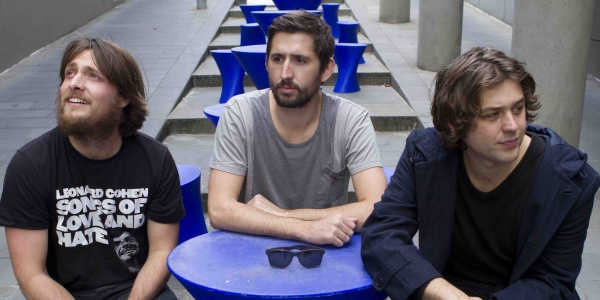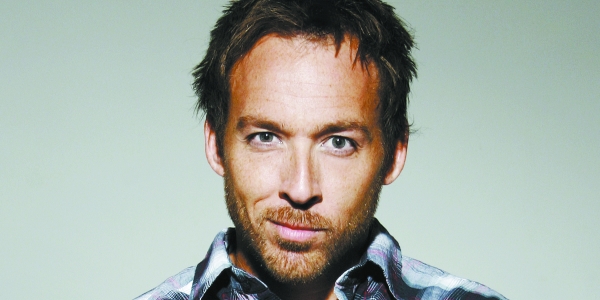There was a time when it didn’t look like there’d be another chance for O’Neil to make another record with The Vasco Era, let alone enjoy it. After their 2010 full-length, Lucille, O’Neil’s brother and lead singer Sid left The Vasco Era, forcing the band into a confusing hiatus. While Sid found work as a social worker on the Gold Coast, bassist Ted O’Neil remained unsure of what the future held.
“He never said ‘I quit.’ He was just being really honest with us by saying, ‘I don’t know if I can do this anymore.’ So for three months we were in limbo. There was no resentment, because he’s my brother and I want the best for him. But it was still quite a strange time. We’d spent a lot of time and effort on this band; about nine years now. Sitting there, thinking that there was a possibility that it might not happen anymore was a weird feeling.”
Even when the band did reconvene to start making music again, O’Neil admits it wasn’t the easiest transition. “When Sid came back, he wasn’t sure right away if he wanted to [play music with the band]. We were sort of touchy, because we didn’t know what was going to happen. The first couple of shows, it was as if we were strangers, even though we’ve known each other as long as we can remember. We were tip-toeing around each other.”
But soon, the band came to a realisation. By focusing less on The Vasco Era and exploring more creative outlets on their own, members of the band became able to operate free of constraints. And the result is a genre-bending collection of tracks that, while still maintaining The Vasco Era’s loud and proud mentality, defies limitations.
.
“While we were down in Melbourne, not really sure what was happening, Sid was up on the Gold Coast writing music. And once we started playing those new songs, we began to see a future there. The music that came out of it is probably our strongest. We’ve all started to work on our University degrees and doing other things instead of focusing solely on the band. And I think before, that focus was what caused some of the unraveling. But there’s a lot more freedom now.”
It’s easy to hear that freedom in The Vasco Era. From the self-reflective heavy, relentless boogie ofRock and Roll Is The Only Thing That Makes Me Feel Good to the swampy groove of Avatar Blues or the fuzzy, dance floor crowding Jesus Sandals, the album benefits from the freshness that can come after a hiatus. Some bands cannot recover, but O’Neil acknowledges that their time apart brought some perspecive.
“With Lucille we spent 18 months rehearsing. We had this specific idea of what the album should be. We had to force the songs to sound a specific way. Whereas with this record, we agreed there should be no concept with the album. We just let the songs do what they’d normally do, instead of forcing them into something that might not sound right. We just didn’t want to confine the songs.”
From liberation of their sound comes the feeling of liberation within the band as people. Now operating with Inertia Records, The Vasco Era welcome the opportunity to grow not just as artists, but as people. Not Everyone Is From New York City, one of the more revealing tracks on The Vasco Era, comes to terms with the band’s past in the music industry. Once industry darlings, the band has come to a peace with their past. And they’re ready for bright, and above all, fun future.
“The industry, to a degree, is great. Otherwise people wouldn’t be hearing the music they are hearing. There’s a lot of control within the industry, over the bands and what’s coming out. We felt like we had a lot of perceived pressure on us. We never had anyone say ‘Do this, do that,’ but because we were with a label, we felt we had to write music in a certain way and go about things in a certain way. But when we became independent before this record, we realised we could do whatever we want. And it’s a very good thing.”

